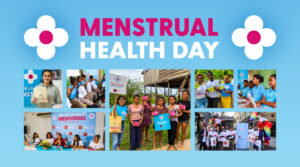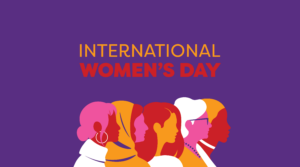HIV activism has been instrumental in the fight against the epidemic. Not only has he defended the rights of people living with the virus, but he has also pushed governments and decision makers to create laws that guarantee those rights, he has opposed violence and has encouraged medical research.
However, activism is currently facing new challenges that require a committed and strategic response. The fight is not over, and there are still reasons to keep mobilizing.
The Ultimate Goal: The Cure
Since the beginning of the epidemic, generations of activists have mobilized for one goal: to obtain a cure. It is undeniable that medical advances and new therapies have allowed a person with the HIV virus to lead a completely normal and healthy life, but it is important to remember that this is a temporary measure.
If the COVID19 pandemic has taught us anything, it is that cures can be achieved when the will exists and resources are mobilized, and activists are aware of this situation. That is why they continue to pressure both governments and laboratories to continue working in this race.
Stigma and discrimination
Despite the laws, campaigns and mobilizations, discrimination remains a significant problem today.
Stigma can manifest itself in different ways. Layoffs and discrimination in workplaces, exclusion from medical plans, exposure of the diagnosis, and of course, a whole series of rejections and negative prejudices in social and love life.
Rejection, prejudice, stigma and discrimination are difficult issues to eradicate, but they can tremendously affect the quality of life of people with HIV. In addition, they can hinder access to medical care and support services.
Equal access
Although advances in medicine have allowed for better management of HIV, access to care and treatment remains a problem. In many parts of the world, especially in marginalized and disadvantaged communities, access to quality health services and antiretroviral drugs is limited. Whether it is continents, entire countries, or locations further away from a center, there is a significant gap in care and treatment, creating a false illusion of advancement and progress.
The challenge, then, is to advocate for policies and programs that ensure equitable access. This includes advocating for strong health systems, removing financial barriers, decentralizing services, and engaging communities.
Some questions with their answers
What can I do as an individual to support HIV activism?
You can educate yourself about HIV and share accurate, up-to-date information with others. Participate in awareness campaigns and events or donate to activist organizations.
How can I combat HIV-related stigma and discrimination?
Fighting stigma requires a collective effort, but you can start by challenging your own prejudices and stereotypes related to HIV. Then, speak out about it to challenge misinformation.
What are the challenges facing HIV activism today?
Contemporary HIV activism faces significant challenges, including persistent stigma, equitable access to care and treatment, and political commitment and sustainable funding for a cure.
Many advances, but much to keep fighting for
Much has been done in the fight against HIV, but the challenges of contemporary activism are still many.
This includes promoting education and awareness about the virus, challenging negative stereotypes, and working to build a more inclusive and compassionate society. And for that it is essential to work in collaboration with human rights organizations, health institutions and communities to combat discrimination in all its forms.
But in addition, the challenges include continuing to put pressure on the authorities to break access barriers, guarantee full and equitable care, and always continue working for a cure.
Remember that at AHF we do HIV testing at no cost, in addition to linking people living with HIV to life-saving treatment. We also advise on the detection and treatment of Sexually Transmitted Infections. Locate our offices in your country and learn about all our services.







